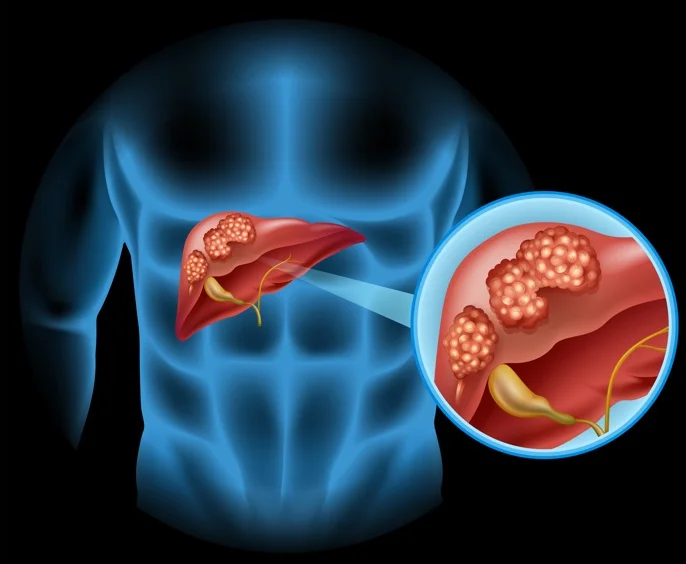End-stage liver cancer causes metastases to spread to the lymph nodes or internal organs. These patients are not candidates for surgery. Basically, stage 4 liver cancer treatment involves systemic methods. Physicians use drug therapy to control all the tumors in the body at the same time. Local treatments may also be used to shrink the primary tumor, and palliative procedures may be performed to improve the quality of life.
Targeted therapy
The main treatment method for end-stage hepatocellular carcinoma is considered to be targeted therapy. It is more effective than other types of drug treatment.
Patients are prescribed kinase inhibitors. Some of them directly affect the division of cancer cells, while others also help reduce the growth of blood vessels that feed the tumor.
Sorafenib and lenvatinib are considered first-line drugs. The first medication is considered preferable for patients with hepatitis C, one of the major causes of cirrhosis and liver cancer.
If first-line therapy fails or becomes ineffective over time, other kinase inhibitors are prescribed, known as second-line therapy: these are regorafenib or cabozantinib.
All kinase inhibitors are taken as pills. They may cause side effects, such as fatigue, red palms and feet, high blood pressure, abdominal pain, and diarrhea. However, treatment with these drugs is usually better tolerated compared to cytostatic chemotherapy.
Anti-angiogenic therapy
Anti-angiogenic therapy, a type of targeted therapy, is used to slow tumor growth. The essence of the treatment method is the use of drugs that prevent the growth of new blood vessels necessary for the nutrition of malignant tumors.
Two types of drugs are used for this purpose: monoclonal antibodies targeted at vascular endothelial growth factor (VEGF) or its receptors (VEGFR). Bevacizumab is considered a first-line treatment. It is administered intravenously once every three weeks. Doctors abroad use ramucirumab as a second-line angiogenesis inhibitor.
Immunotherapy
Immune checkpoint inhibitors (ICPIs) are effective for liver cancer. They “switch off” checkpoints on the surface of immune cells that cancer cells use to pretend to be normal cells and avoid immune attack.
In developed countries, six drugs in the ICPI class have been approved for liver cancer treatment. By the mechanism of action, they are PD-1, PD-L1, and CTLA-4 inhibitors. The first two groups can be used as monotherapy, while the third is usually added to one of the immunotherapeutic drugs. Immunotherapy usually involves intravenous infusion of drugs once every 2-6 weeks (depending on the medicines used).
Chemotherapy
Systemic chemotherapy is of little use in liver cancer. Therefore, it is only used when other treatments have failed. Only a small number of patients respond to cytostatic chemotherapy, and this response is short-lived.
Local treatments
There are local treatment methods for liver cancer that aim to remove or destroy tumors: liver resection surgery, organ transplant surgery, radiofrequency ablation, cryoablation, and others. They are not usually used to treat end-stage cancer.
Experimental methods
When standard treatment options are exhausted, patients can enroll in clinical trials. Experimental methods often prove effective and can improve prognosis.
For example, oncologists are using oncolytic viruses against liver cancer in research. The JX-594 virus is showing good results. This is a modified smallpox virus that only infects cancer cells. It not only destroys them, but also triggers an immune response against the tumor.
German clinics are using dendritic cell vaccines to treat many types of cancer, including liver carcinoma. They are made individually for each patient. These vaccines enhance the anti-tumor immune response by helping immune cells better recognize cancer cells.
There are effective methods that can increase the life expectancy of patients with even stage 4 liver cancer. You can take advantage of the latest medical advances by traveling abroad. You are welcome to visit the Booking Health website to find a clinic and get travel arrangement services.
In conclusion, advanced treatments and innovative approaches offer hope for stage 4 liver cancer patients. Stay informed with the latest healthcare insights at NextMagazine!

